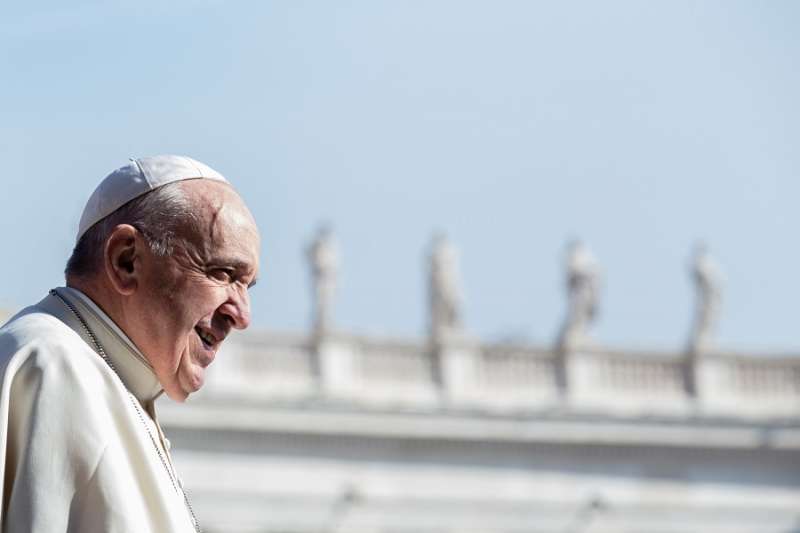In a meeting with members of the Federation of European Food Banks Saturday, Pope Francis warned against food waste, which he said shows a lack of concern for others.
“Fighting against the terrible scourge of hunger means also fighting waste. Waste reveals an indifference towards things and towards those who go without. Wastefulness is the crudest form of discarding,” he said May 18.
“To throw food away means to throw people away,” the pope added. “It is scandalous today not to notice how precious food is as a good, and how so much good ends up so badly.”
Francis noted that in today’s complex world, it is also important that the good done by charitable organizations is “done well,” and is not “the fruit of improvisation.”
Doing good “requires intelligence, the capacity for planning and continuity. It needs an integrated vision, of persons who stand together: it is difficult to do good while not caring for each other,” he said.
Even good initiatives guided by good intentions can get trapped by “extended bureaucracy, excessive administrative costs, or become forms of welfare that do not lead to authentic development,” he noted. “Wasting what is good is a nasty habit that can insinuate itself anywhere, even in charitable works.”
The pope also emphasized the importance of actions over words: “It is always easy to speak about others; it is much harder to give to others, and yet this is what matters.”
Food banks, he said, are good at taking what is “thrown into the vicious cycle of waste” and inserting it into a “virtuous circle” of good use instead.
The pope went on to speak about the economy, which he said has a “profound need” of working to the advantage of all, and especially those who are disadvantaged.
“It is good to see languages, beliefs, traditions and different approaches converging, not for self-interest, but rather to give dignity to others,” he said.
Noting the modern world’s connectivity and rapid pace, he decried the “frenetic scramble for money” which leaves people with an increasing interior frailty, disorientation, and loss of meaning. He added: “What I care about is an economy that is more humane, that has a soul, and not a reckless machine that crushes human beings.”
“We must find a cure,” he urged, by “supporting what is good and taking up paths of solidarity, being constructive.”
“We must come together to relaunch what is good, knowing full well that, even if evil is at large in the world, with God’s help and the good will of so many like yourselves, the world can be a better place,” he said.
“We need to support those who wish to change things for the better; we need to encourage models of growth based on social equality, on the dignity of human persons, on families, on the future of young people, on respect for the environment.”

